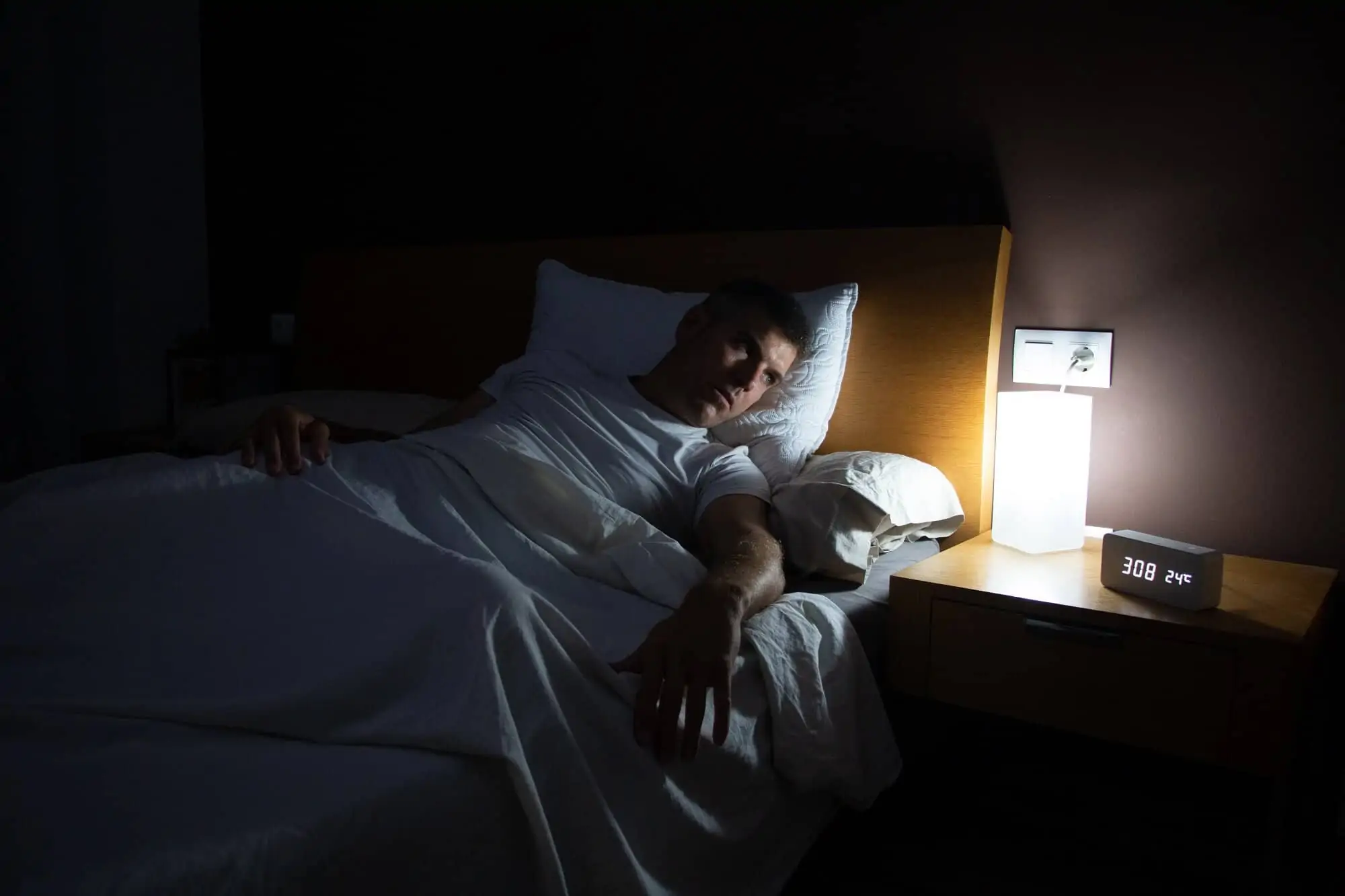Why Do 70 Million Americans Suffer from Chronic Sleep Issues?
Most of us have heard it a million times – A good night’s sleep is essential to maintain optimal overall health. But, for around 70 million Americans, the thought of getting 8 hours of restful, restorative sleep seems completely out of the question.
Chronic sleeping issues are quite common and rarely talked about, but many people struggle each night in a way that can greatly impact their health. So, why are chronic sleep issues so common in the first place?
When is a Sleeping Issue Chronic?
Just about all of us can recall a night here and there where we found ourselves tossing and turning despite our best efforts to go to sleep. Maybe we were nervous in anticipation of a big day coming up, or maybe we drank a little too much coffee that evening. Regardless, just about everyone will have a bad night’s sleep from time to time.
For a sleeping issue to be classified as chronic, it has to occur at least once a week for at least 3 months. Many individuals have some trouble either falling asleep or staying asleep just about every single night, since insomnia-like conditions can be self-perpetuating by both throwing off our natural sleep cycle and creating a feeling of pressure surrounding bedtime that can introduce more stress into the system at the time when we should be relaxed and calm.
Why are Sleeping Problems So Common Among Americans?
One reason why sleeping issues affect so many of us is because there are simply a lot of factors that can interfere with our sleep. Let’s cover the most common culprits behind difficulties with falling or staying asleep each night.
#1: Stress
Perhaps unsurprisingly, stress is the most common reason why a person may struggle with sleep, and chronic stress can certainly lead to chronic sleep issues. The reason why it’s the most common culprit is because Americans are more stressed out than ever before due to changes in how we work, how we balance our finances, how technology has changed our society, and more.
Stress is a lot more than a feeling of uneasiness. It’s a complex neurochemical process that involves the secretion of the hormone cortisol from the brain, which fires a series of nervous system responses that are direct antagonists to our sleeping cycles. Cortisol causes our minds to race, our breathing rate to increase and our heartrates to rise, and all of these symptoms can prevent us from relaxing enough to fall asleep or stay asleep each night.
#2: Anxiety
Anxiety is a chronic mental health condition in which the body is constantly engaged in a stress response despite no actual threat present. About 1 in 4 Americans experiences anxiety at some point or another, and without a doubt, anxiety can interfere drastically with sleep. When the body’s “fight or flight” response is activated, a person may find it impossible to relax, and therefore feel wired at bedtime due to an overstimulated nervous system.
#3: Depression
About 16 million Americans suffer from depression, another chronic mood disorder that can also prevent a person from maintaining a healthy sleep schedule. Depression is a condition in which the brain fails to produce adequate serotonin, a neurochemical that makes us feel happy, calm and content. Serotonin is also a key hormone involved in our sleeping process that, when deficient, can result in a hormonal environment in which sleep is extremely difficult to achieve.
#4: Thyroid Conditions
The thyroid is a small gland in the body that produces specific hormones that play a role in many aspects of our health, including our energy levels, metabolism, and mood. The thyroid is also a vulnerable part of the body that can be dysfunctional due to dietary issues, stress, exhaustion, chronic inflammation and more. Both an underactive and overactive thyroid can result in chronically poor sleep, by causing an imbalance of specific hormones involved in the sleeping process.
#5: Chronic Pain
Chronic Pain is a major contributor to sleep problems, creating a vicious cycle where pain makes it difficult to sleep, and lack of sleep makes the inflammation and pain symptoms feel even worse. Pain is the most frequent cause of insomnia and among those with chronic pain, an estimated 50% to 80% have ongoing sleep difficulties. For people with chronic pain, trouble falling asleep is one of the most prevalent types of sleep disruption, but waking up during the night and waking earlier than desired are also frequent problems.
#6: Hormonal Fluctuations and Imbalances
Reproductive hormones also have a big influence on our sleep, which is why so many women in particular suffer from poor sleep at specific points during their menstrual cycles, and during menopause. Hormones like estrogen, progesterone and testosterone need to maintain a specific balance in order to create an environment in which certain functions of our brain, including sleep, operate efficiently. Hormonal imbalances and deficiencies are among the most common causes behind chronic sleep issues in women, but imbalances of male sex hormones can also be disruptive to sleep, including male estrogen dominance.
#7: Nutritional Deficiencies
Failing to consume adequate amounts of specific nutrients can lead to chronic sleep issues. Specifically, deficiencies in vitamins B and D, along with magnesium, calcium and iron can all lead to insomnia as these nutrients directly support our sleep cycle among other crucial processes of the nervous system.
#8: Substance Abuse
Abusing substances including alcohol and stimulant drugs can lead to chronic sleep issues as these substances create changes in our neurochemistry that can make us feel wired at night, or simply prevent the body from producing enough melatonin to fall asleep easily. Similarly, drinking too much caffeine during the day, or too closely to bedtime, can directly prevent a person from falling asleep due to its stimulating effects on the nervous system.
#9: Working Late
More Americans are working long hours, and are still at their workstations well into the evening hours. This can make us feel wired at bedtime as working late forces the mind to maintain high energy levels that are difficult to simply shut off once we are ready to go to bed.
#10: Using Devices Late at Night
Simply using your laptop or other device too late at night can reduce in a lack of sleep, as the blue light emitted from these devices can lead to neurochemical changes that cause us to feel more awake when we should be winding down to go to bed.
Difficulty with Sleeping: Are You One of the 70 Million Americans Struggling to Get Shuteye?
If you’re one of the many Americans struggling with getting enough sleep at night, the first thing you should do is to determine whether you have a sleep disorder, or disordered sleep. Check out this article to find out the difference.
Because of the important link between adequate sleep and overall health, it is wise to take chronic sleep issues seriously and create a sleep routine that promotes optimal sleep and recovery as soon as you can.







